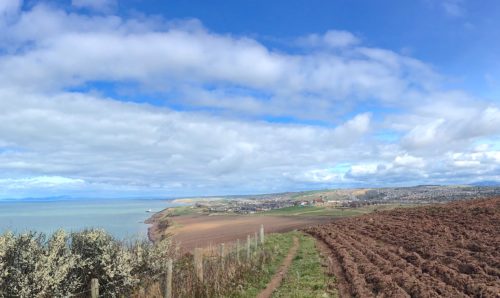Sellafield site futures
Projects 10th October 2019
Key contact: Richard Taylor, The University of Manchester
This project, led by The University of Manchester and funded by UKERC, considers Sellafield’s possible end states and their technical, ethical, regulatory, socioeconomic, and ecological implications.
The clean-up and decommissioning of the Sellafield Nuclear Licensed Site is currently estimated by the Nuclear Decommissioning Authority to cost between £60 – 140 billion over a 120-year period. However, this cost will be profoundly influenced by the chosen end-state for the site and research exploring acceptable end states for Sellafield aligns with the priorities of the Nuclear Sector Deal as a critical enabler of reduction in decommissioning costs. Far from a technical or financial matter only, deciding on potential end states involves ethical and environmental considerations that warrant wider debate.
New approaches such as in situ disposal of certain infrastructure with radioactivity present on site could radically alter the technical, environmental and social challenges involved and potentially reduce costs. In addition, the availability and capacity of future radioactive waste disposal facilities including both surface and deep disposal facilities will have a significant influence on which end states are ultimately achievable.
Here, we will take a whole systems approach to consider Sellafield’s possible end states to explore the implications of different options. We will host a series of workshops to identify the technical, ethical, regulatory, socioeconomic, and ecological implications of realising different end states. This will allow us to formulate the major research questions to be addressed in future research proposals.
The researchers include Katherine Morris (nuclear environment and waste expert), Liz Thomas (heritage and communities peace and reconciliation expert) and Petra Tjitske Kalshoven, (social anthropologist) with Richard Taylor and Francis Livens (nuclear networking via the Dalton Nuclear Institute). The proposal builds on extant connections with industry, government and local and national stakeholders to create a platform for engagement focussed on site end-states through a fully collaborative process.
Notably, the interdisciplinary team will collaborate equitably with all stakeholders in the process so that a holistic research programme will emerge that includes the social and natural sciences alongside engineering and business. Distinctively, this proposal draws together a wide range of disciplines, stakeholders and diverse investigator backgrounds, thereby offering whole-system coverage of a key issue for the UK’s future.
The project will explore a series of credible end state scenarios for the Sellafield Site based on the collective expertise and perspectives of the participants. These scenarios would be accompanied by a detailed list of research questions and an outline route to resolution identifying the expertise, facilities and investment required.
Contact: richard.taylor-4@manchester.ac.uk; petratjitske.kalshoven@manchester.ac.uk; liz.thomas@manchester.ac.uk.
Research team: Richard Taylor, Petra Tjitske Kalshoven, Liz Thomas, Katherine Morris, Wallace Heim, Alex Jackson; with workshop facilitation kindly provided by Robert Heslip and Helen Perry.
CumbriaPetra Tjitske KalshovenRichard TaylorSellafieldThe University of Manchester




